Taiwen He
RLAIF-V: Aligning MLLMs through Open-Source AI Feedback for Super GPT-4V Trustworthiness
May 27, 2024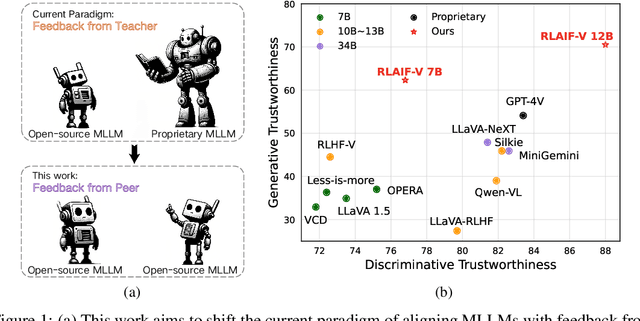
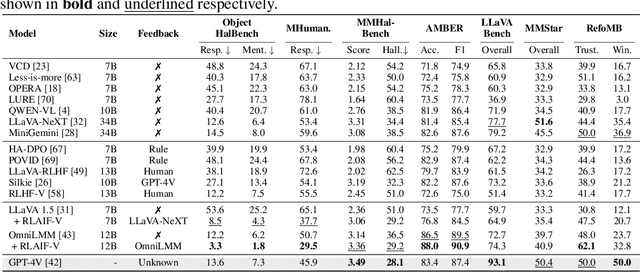
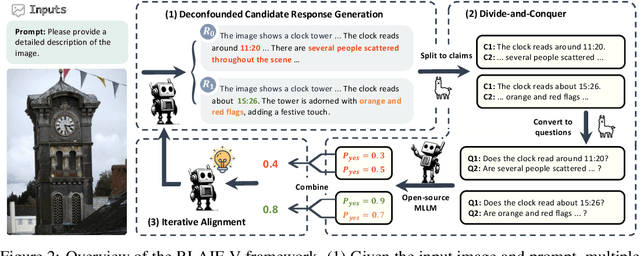
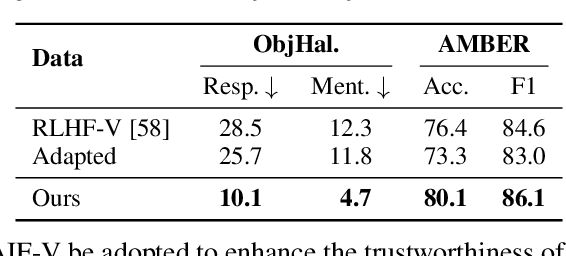
Abstract:Learning from feedback reduces the hallucination of multimodal large language models (MLLMs) by aligning them with human preferences. While traditional methods rely on labor-intensive and time-consuming manual labeling, recent approaches employing models as automatic labelers have shown promising results without human intervention. However, these methods heavily rely on costly proprietary models like GPT-4V, resulting in scalability issues. Moreover, this paradigm essentially distills the proprietary models to provide a temporary solution to quickly bridge the performance gap. As this gap continues to shrink, the community is soon facing the essential challenge of aligning MLLMs using labeler models of comparable capability. In this work, we introduce RLAIF-V, a novel framework that aligns MLLMs in a fully open-source paradigm for super GPT-4V trustworthiness. RLAIF-V maximally exploits the open-source feedback from two perspectives, including high-quality feedback data and online feedback learning algorithm. Extensive experiments on seven benchmarks in both automatic and human evaluation show that RLAIF-V substantially enhances the trustworthiness of models without sacrificing performance on other tasks. Using a 34B model as labeler, RLAIF-V 7B model reduces object hallucination by 82.9\% and overall hallucination by 42.1\%, outperforming the labeler model. Remarkably, RLAIF-V also reveals the self-alignment potential of open-source MLLMs, where a 12B model can learn from the feedback of itself to achieve less than 29.5\% overall hallucination rate, surpassing GPT-4V (45.9\%) by a large margin. The results shed light on a promising route to enhance the efficacy of leading-edge MLLMs.
RLHF-V: Towards Trustworthy MLLMs via Behavior Alignment from Fine-grained Correctional Human Feedback
Dec 01, 2023


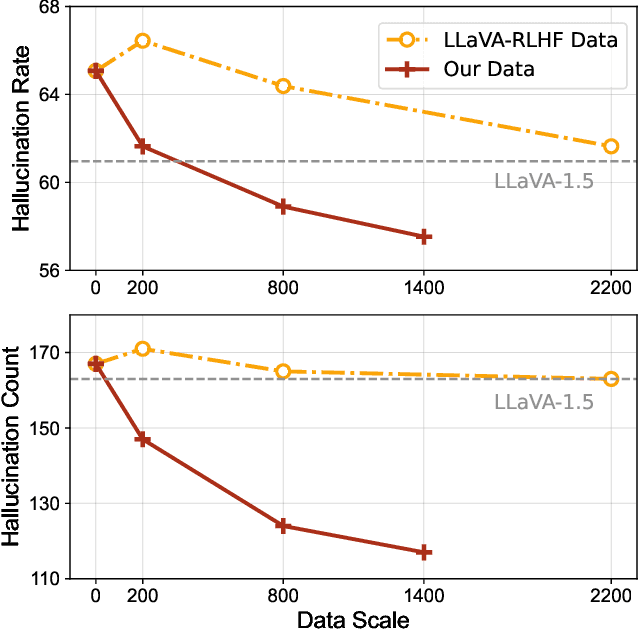
Abstract:Multimodal Large Language Models (MLLMs) have recently demonstrated impressive capabilities in multimodal understanding, reasoning, and interaction. However, existing MLLMs prevalently suffer from serious hallucination problems, generating text that is not factually grounded in associated images. The problem makes existing MLLMs untrustworthy and thus impractical in real-world (especially high-stakes) applications. To address the challenge, we present RLHF-V, which enhances MLLM trustworthiness via behavior alignment from fine-grained correctional human feedback. Specifically, RLHF-V collects human preference in the form of segment-level corrections on hallucinations, and performs dense direct preference optimization over the human feedback. Comprehensive experiments on five benchmarks in both automatic and human evaluation show that, RLHF-V can enable substantially more trustworthy MLLM behaviors with promising data and computation efficiency. Remarkably, using 1.4k annotated data samples, RLHF-V significantly reduces the hallucination rate of the base MLLM by 34.8%, outperforming the concurrent LLaVA-RLHF trained on 10k annotated data. The final model achieves state-of-the-art performance in trustworthiness among open-source MLLMs, and shows better robustness than GPT-4V in preventing hallucinations aroused from over-generalization. We open-source our code, model, and data at https://github.com/RLHF-V/RLHF-V.
 Add to Chrome
Add to Chrome Add to Firefox
Add to Firefox Add to Edge
Add to Edge